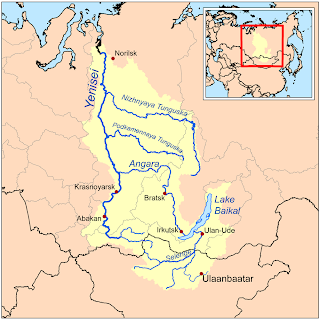After a quick trip to the West Coast last weekend, I’m all about news this week... My thoughts on Ilichevskii’s Matisse, will be on the way soon: I finished Matisse on a flight to California and then wrote a draft post, but I don’t think I write well over the Great Lakes.
First English PEN Literature in Translation Award. I learned from the Three Percent blog that Arch Tait will soon receive English PEN Literature’s first translation award, for his translation of Anna Politkovskaya’s Putin’s Russia, published by Harvill Press/Harvill Secker. The award will be presented on November 8.
I’m still making my way through my first issue of Сноб (Snob) magazine… and I still haven’t decided what I think of it. One Bookshelf reader, Steven Lubman, commented that Snob is “opulent,” and that’s a very apt description: it’s beautifully produced, with heavy paper, inserted bookmarks (!), splashy design, and excellent photographs. My biggest problem with Snob (other than the irritating name) is the same problem I face with other magazines: it’s a magazine, and I prefer reading books, specifically novels, at the end of the day.
That means I don’t gravitate toward Snob, though I thoroughly enjoyed an interview with Igor Sutyagin and a story by Zakhar Prilepin about the removed intimacies of Russian apartment living. I have a mixed impression of Snob’s interview format: several Snob “project” participants interviewed Sutyagin, giving that piece varied perspectives. But I thought the participant count for Q&A with Boris Akunin was too high, making the piece read like a series of micro-interviews. It read easily but the lack of continuity made it unsatisfying. The new issue of Snob is still in my office in its cardboard sleeve; it contains fiction by Viktoria Tokareva and Dmitrii Bykov. I know I’ll get to it… but my books call to me first. Related: This week’s New York Times Magazine cover story is about Mikhail Prokhorov, Snob’s benefactor. I haven’t read the whole thing but a quick skim immediately turned up “Proky” saying, “I don’t read.” Snob editor Masha Gessen is quoted as replying, “Then I guess we can write whatever we want!”
Speaking of loving books: travel is always more fun with an excursion to a Russian bookstore, so I stopped at a shop just off Highway 101 in Tarzana, California, last week. I bought so many books for $76 that I went straight to the post office, filled a large flat rate box, and sent it home. I focused on the first half of the twentieth century but also bought a book of stories by Fazil Iskander – I’m still hoping to find a truly favorite writer whose name begins with I/И so I can continue my A to Я series – and saw lots of detective novels and books by popular literary fiction writers such as Rubina, Sorokin, and Ulitskaya. I was happy to find an affordable set of Sholokhov’s Тихий Дон (The Quiet Don/Quiet Flows the Don), which Steven Lubman also mentioned in his afore-mentioned comment… I’ve been wanting to try the Don again after not liking it, in translation, much years ago. I also bought a collection of Boris Vasil’ev’s short novels and Solzhenitsyn’s First Circle, which I read and liked years ago in translation. I’ve been so completely focused on very recent releases for so long that I’m looking forward to reading and rereading some modern classics.

Various Translation Releases &tc. The fall 2010 issue of Чтения/Readings focuses on Anton Chekhov. The journal is bilingual; the table of contents is online… More A.P. Chekhov news: Stanford University Press will release Five Plays, with new translations by Marina Brodskaya, in November. Tobias Wolff’s introduction is available online… New York Review Books released The Road, an eclectic collection of writings by Vasily Grossman, edited by Robert Chandler and translated by Elizabeth Chandler, Robert Chandler, and Olga Mukovnikova. Ken Kalfus’s review from The New York Times Book Review is online here… Today’s New York Times Book Review includes a piece about Ian Frazier’s Travels in Siberia, which reviewer Joshua Hammer called an “endlessly fascinating tale.” I enjoyed the excerpts in The New Yorker very much but am not sure I’m up for a 500-page nonfiction book now that I have so many thick novels on the shelf… One final note: my review of Martin Cruz Smith’s Three Stations, which I wrote for The Pennsylvania Gazette, my university’s alumni magazine, is online here. I’m especially excited because this is my first review for a print publication.
Up next: The Matisse piece, drafted aloft, soon to be edited on land. Then Dovlatov’s Зона (The Zone), which took time to hook me. I’m reading The Zone together with Danzig Baldaev’s Drawings from the Gulag, which is a tremendously useful and nicely designed documentary book about the Gulag system.
Image credit: Chekhov’s signature, from user 53RUStm, via Wikipedia.





